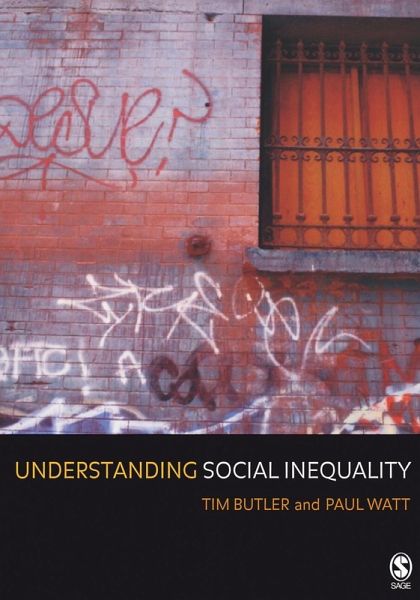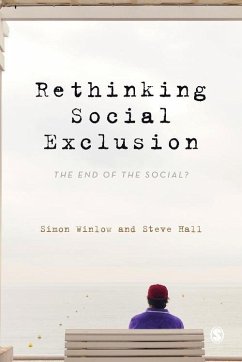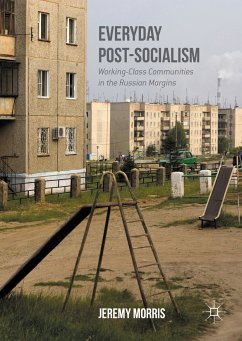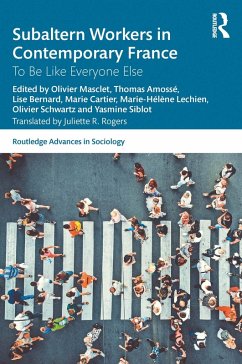
Understanding Social Inequality (eBook, PDF)
Versandkostenfrei!
Sofort per Download lieferbar
40,95 €
inkl. MwSt.
Weitere Ausgaben:

PAYBACK Punkte
20 °P sammeln!
"This is a book that should be read by anyone interested in class, inequality, poverty and politics. Actually, probably more importantly it should be read by people who think that those things do not matter! It provides a wonderful summation of the huge amount of work on these topics that now exists and it also offers its own distinctive perspectives on a set of issues that are - despite the claims of some influential commentators - still central to the sociological enterprise and, indeed to political life." - Roger Burrows, University of York "A clear and compelling analysis of the dynamics o...
"This is a book that should be read by anyone interested in class, inequality, poverty and politics. Actually, probably more importantly it should be read by people who think that those things do not matter! It provides a wonderful summation of the huge amount of work on these topics that now exists and it also offers its own distinctive perspectives on a set of issues that are - despite the claims of some influential commentators - still central to the sociological enterprise and, indeed to political life."
- Roger Burrows, University of York
"A clear and compelling analysis of the dynamics of social and spatial inequality in an era of globalisation. This is an invaluable resource for students and scholars in sociology, human geography and the social sciences more generally."
- Gary Bridge, University of Bristol
With the declining attention paid to social class in sociology, how can we analyze continuing and pervasive socio-economic inequality? What is the impact of recent developments in sociology on how we should understand disadvantage?
Moving beyond the traditional dichotomies of social theory, this book brings the study of social stratification and inequality into the 21st century. Starting with the widely agreed 'fact' that the world is becoming more unequal, this book brings together the 'identity of displacement' in sociology and the 'spaces of flow' of geography to show how place has become an increasingly important focus for understanding new trends in social inquality.
- Roger Burrows, University of York
"A clear and compelling analysis of the dynamics of social and spatial inequality in an era of globalisation. This is an invaluable resource for students and scholars in sociology, human geography and the social sciences more generally."
- Gary Bridge, University of Bristol
With the declining attention paid to social class in sociology, how can we analyze continuing and pervasive socio-economic inequality? What is the impact of recent developments in sociology on how we should understand disadvantage?
Moving beyond the traditional dichotomies of social theory, this book brings the study of social stratification and inequality into the 21st century. Starting with the widely agreed 'fact' that the world is becoming more unequal, this book brings together the 'identity of displacement' in sociology and the 'spaces of flow' of geography to show how place has become an increasingly important focus for understanding new trends in social inquality.
Dieser Download kann aus rechtlichen Gründen nur mit Rechnungsadresse in A, D ausgeliefert werden.













